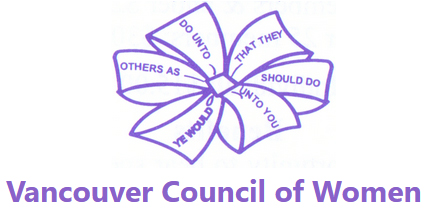By Elizabeth Gautschi, Civic Affairs Convenor
Metro Vancouver
Two years ago, the spillway gate at the Cleveland Dam released a large volume of water into the Capilano River while it was undergoing maintenance. The Board of Metro Vancouver recognizes the impact that the accident has had on everyone involved and they are committed to ensuring this never happens again. As part of their commitment to making improvements to the system, a comprehensive review of the Cleveland Dam is being conducted and a number of new safety enhancements are being implemented. An interim public warning system has been installed that includes audible and visible alarms and additional public warning signs. Metro is now undertaking work to develop both a public education program and the long-term enhancements along the river.
Throughout summer 2022 – summer 2023 you can expect to see engineering teams completing on-site studies and hydraulic modeling of the Capilano River, updated project information signs and website content, and a third-party engineer consulting firm conducting onsite surveys to determine patterns of the public and river users along the Capilano River to inform the long-term public safety enhancements.
City of Delta
Metro Vancouver operates a series of permanent air quality monitoring stations throughout the Lower Fraser Valley that collect information on the level of pollutants in our air. View the current air quality data the Delta stations (North Delta and Tsawwassen) and other stations in the region, and view Metro Vancouver’s Caring for the Air Reports.
As a joint venture between Health Canada, Environment Canada and the BC Ministry of Environment, BC Air Quality is now active throughout BC. This resource may be used to find out what air quality is like in other communities, including any current air quality advisories in the province.
City of New Westminster
The City of New Westminster is committed to protecting, enhancing and managing the natural environment to provide a sustainable living environment for local residents. The City has established several programs and initiatives that help to improve the environment. Learn about the many ways that the City is showing its environmental commitment by going to the City’s website at newwestcity.ca where you can click on one of the various topic areas that include: energy emissions and climate change, water protection and conservation, integrated stormwater management plan, smart gardening and invasives, and many other topics.
City of North Vancouver
The City recognizes the value in balancing the recreational and educational aspects of its urban parks. Among the environmental initiatives being explored and integrated by the City are: pursuing creative solutions for storm water management that include designing and implementing community detention ponds that do not affect existing waterways and help to educate the public on its use; using bio-retention areas or rain gardens in private development sites; limiting the installation of new trails or facilities that do not benefit a sensitive habitat; erecting trailside barriers such as fences along heavy use trails to protect sensitive ravines and creeks; restoring riparian areas that have been negatively impacted by erosion or park use; implementing policies that balance the health and safety of residents with the protection of the environment; and managing invasive non-native plant species and integrating naturescaping principles to increase the habitat for wildlife and birds
City of Surrey
Surrey has over 800 parks and one park is uniquely adapting to climate change by making room for the river, the future Nicomekl Riverfront Park. Located on the south side of the Nicomekl River in South Surrey, this 3 kilometre linear park will extend from Elgin Rd to 40th Ave. Eighty acres in size, the future nature park will be 14 times larger than Crescent Beach Park. The park will have two large park spaces, the Hadden Mill and Oxbow zones (phase 1), located on either side of King George Boulevard. The park will combine environmental, cultural, art, heritage, recreation and social spaces. A nature-based design approach will protect flora, fauna, creeks and the park’s natural water system. Based on Surrey’s Coastal Flood Adaptation Strategy, the park will turn planning into action to address sea level rise and coastal flooding. This project is funded in part by the Government of Canada through the Disaster Mitigation and Adaptation Fund.
City of Vancouver
The Women4Climate (W4C) program aims to advance bold, local climate action in alignment with Vancouver’s Climate Emergency Action Plan and Climate Change Adaption Strategy. This program contributes to the next generation of climate leaders through a mentorship program dedicated to women working in climate to create a healthier, greener, more resilient, and economically prosperous urban future. In 2019, Vancouver became the eighth city to launch a local C40 Women4Climate Mentorship Program. Each year, the program matches leaders from international and community businesses and organizations with emerging women leaders. Over the 10-month mentorship period, mentors share their knowledge, experiences, and support the mentees to develop their leadership skills while advancing their climate initiatives. For more information go to Green Vancouver.

